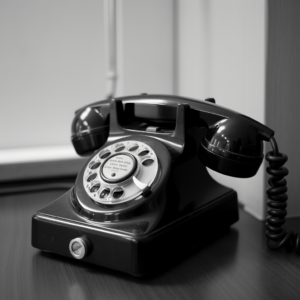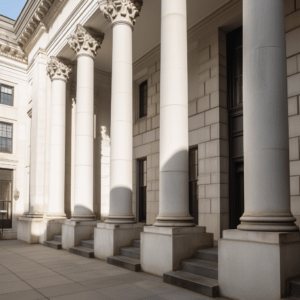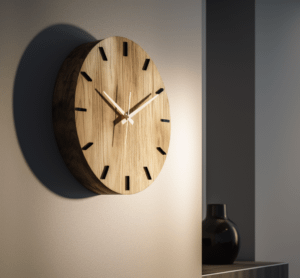Fraud and corruption are major issues in important fields such as banking, health care, and industries that rely on government contracts —all of which thrive in New York City. If you see or suspect fraud, do not stay quiet. You can do the public an enormous service by reaching out to a New York City whistleblower lawyer to report what you see. You may also be able to recover substantial financial rewards and qualify for protections against discrimination by becoming a whistleblower.
To get started, schedule a free and confidential consultation with an NYC whistleblower lawyer at Tycko & Zavareei LLP. Our experts can help guide you through the disclosure process and protect your professional and personal identity at every turn.
When Should I Contact a New York City Whistleblower Attorney?

If you are going to make a whistleblower claim for a financial reward, it is imperative that you speak up as quickly as possible. Waiting may allow crucial evidence to be lost or destroyed and can even implicate you in the crime. Perpetrating or becoming implicated in the fraud can reduce your chances of receiving a reward.
An experienced qui tam lawyer can help you understand what kinds of evidence you need to come forward and how you can qualify for whistleblower protections and rewards. Our New York City whistleblower attorneys are available to answer any questions you may have about blowing the whistle on fraud in the Big Apple.
Common NYC Whistleblower Cases
Here are some of the most common types of whistleblower cases in New York City:
- Customs and tariffs fraud
- Securities fraud
- Healthcare fraud
- Tax fraud
- Commodities fraud
- Banking fraud
- Government contracts fraud
Federal and State Laws against False Claims
The False Claims Act is one of the most powerful federal anti-fraud laws in place today. It gives average people the opportunity to file claims on behalf of the federal government when they have information about false claims being made that draw down taxpayer funds. Those whistleblowers, also known as qui tam relators, may recover anywhere from 15 to 30 percent of the stolen funds if their information leads to a successful settlement.
New York state whistleblower laws, however, include several other powerful statutes for reporting fraud and false claims targeting state funding:
- NY False Claims Act (State Finance Law, §§187-194): The New York False Claims Act (NYFCA) protects NY state funding, as well as funds managed by any county, city, town, village, school district, educational board, municipal corporation, or other political subdivision in the state. Like its federal counterpart, the NYFCA assesses treble damages per false claim. The NY False Claims Act can also be used to report tax fraud, as long as the damages exceed $350,000 for an individual with an annual income greater than $1,000,000.
- Social Services Law § 366-b, Penalties for Fraudulent Practices: The Social Services Law is designed to protect NY Medicare and Medicaid funds from being misappropriated. Section 366B makes the submission of false claims for rendered medical services a Class A misdemeanor.
- Penal Law Article 175, False Written Statements: Penal Law Article 175 covers the falsification of business, written, and financial statements, as well as tampering with public records. Falsifying business records in the second degree is also considered to be a Class A misdemeanor.
- Penal Law Article 177, Health Care Fraud: Health care fraud in New York State is divided into certain levels of false statements and wrong-doing based on the amount of money embezzled. For instance, health care fraud in the third degree is characterized by $10,000 wrongfully received in the aggregate over the course of one year. This kind of violation is treated as a class D felony in New York State. One step back from third degree fraud is fourth degree health care fraud, which involves a stolen sum of over $3,000 in the aggregate. This is considered a class E felony by the State of New York.
NYC Whistleblower Protection Laws
The following whistleblower laws offer protection to those who come forward to report fraud, false claims, and stolen taxpayer funds in New York City:
- NYC False Claims Act: Singed in to law on May 19, 2005, the NYC False Claims Act rewards whistleblowers up to 30 percent of the funds recovered by the city in a successful fraud case and also protects them against retaliation by their employers. Section §7-805 provides remedies to employees who have been harassed, fired, demoted, suspended, or otherwise subjected to “adverse action” due to their status as a whistleblower.
- New York Labor Law §740: The New York Labor Law makes it illegal for employers to report or threaten to report employees without US citizenship who act as a whistleblowers to immigration authorities. The law also extends similar protections to members of the employee’s family or members of their household who are threatened with immigration reporting. Other “adverse actions” taken by employers against whistleblowers that are prohibited by the New York Labor Law include, but are not limited to, discharge, suspension, and demotion. This law was recently expanded to cover a broader scope of retaliation, as well as greater protections for employees. New York City whistleblowers may now be able to take full advantage of Labor Law 740 in order to protect their rights.
- Federal False Claims Act (31 U.S.C. §3730(h)): The False Claims Act protects whistleblowers who report fraud on the federal level or false claims and wrongful reporting on federal government contracts. Whistleblowers in New York City may sue their employer in the event that they are retaliated against after reporting federal fraud.
- NY False Claim Act (State Finance Law §191): Like its federal equivalent, the NY False Claim Act also provides legal recourse to NYC whistleblowers who are fired, harassed, or discriminated against for a protected disclosure.
- New York Labor Law §741: Health care is an area that is particularly rife with fraud in New York City, state, and the rest of the country. This statute addresses health care employers who may attempt to penalize their employees for their own violations. New York City healthcare employees have the right to report on both improper quality of patient care and inadequate workplace safety. Disclosures by employees about safety and quality of care are automatically considered to be protected, whether they are shared with a supervisor, public entity, news outlet, attorney, or social media.
How Have Whistleblower Protections Been Expanded in NYC?
New York City is known for having some of the toughest labor protection laws in the country. NYC whistleblower laws are similarly robust. Legal remedies you can take to protect yourself from workplace discrimination after speaking up as a whistleblower include:
An injunction against continued discrimination
- Reinstatement to your previous position if you were fired or demoted
- Reinstatement of full fringe benefits and seniority rights at your company
- Payment of up to double back pay, plus interest
- Compensation for any special damages sustained as a result of the discrimination
- Filing fees, litigation costs, and reasonable attorneys’ fees
What Evidence Do I Need to File a NYC Whistleblower Lawsuit?
In order to file a whistleblower lawsuit in New York, you will need to be able to provide proof of wrongdoing. The evidence required may vary based on several factors, including your position at the company, the scope of the fraud, and the kind of false claims being made. For instance, an executive at a large NY bank or financial institution may be able to provide testimony about memos or reports that they have seen or witnessed. However, a laboratory technician at a NYC healthcare facility may be able to share patient files that illustrate upcoding or unnecessary tests being prescribed for patients.
The kinds of proof required are entirely shaped by your own field, as well as your level of insight into the company or individual committing the fraud. This is one reason why it is important to consult with a NYC whistleblower lawyer as soon as you suspect fraud in New York City. Even seemingly harmless documents, such as compliance manuals or onboarding materials, may be able to provide insight on how processes are supposed to work within government contract reporting at your company.
Another reason to consult with a New York City whistleblower lawyer is to avoid collecting evidence that may do more harm than good in your case. While New York is a one-party consent state when it comes to recording conversations, understanding what kinds of confidential files or records are permissible for sharing can save you time, headaches, and even legal issues down the road.
How to File a NYC Whistleblower Case

The following steps are usually involved in making an NYC whistleblower claim:
- Speak to a whistleblower lawyer: If you have concerns about fraud in New York City, your first stop should be a whistleblower attorney. Whistleblowers are required to retain legal representation when reporting fraud against the government. The qui tam attorneys of Tycko & Zavareei LLP can help ensure that the rest of your actions are in maximum compliance with the appropriate reporting procedures, guiding you to your best chance at a reward.
- Collect evidence: Consider what documents may be accessible to you naturally in your line of work at your company and collect evidence under the guidance of your NYC whistleblower attorney. You may also be able to blow the whistle on suspected fraud perpetrated by competitors or as another third party observer if you have inside knowledge of the field or situation.
- File your claim: A New York City fraud lawyer can help you file your complaint, as well as front the cost of any filing fees, expert fees, or other obstacles.
- Wait for review: The government has a review period wherein they investigate fraud complaints before alerting your employer, or the party you reported. Your identity will be kept confidential during the pendency of this investigation when you report through a qui tam law firm like Tycko & Zavareei LLP.
- Cooperate: Your full and willing cooperation with any investigation is required to obtain a whistleblower reward.
- Wait: Some cases take time to settle, especially in instances of extensive or ongoing fraud. Your legal team can continue to follow up on the case, so you don’t have to. In the event that the government declines to pursue your case, you may still be able to file a lawsuit through your attorney’s firm.
- Collect your reward: In a successful case, the whistleblower can collect up to 30 percent of the total funds recovered.
If I Prevail in My NYC Whistleblower Lawsuit, am I Entitled to a Reward?
Whistleblower rewards can range from the thousands to the millions. The largest reward yet for tax fraud involves a whistleblower payout of $104 million. Securities and exchange fraud recently paid another whistleblower $114 million in 2020.
Not every whistleblower is entitled to a reward, but the majority are. Rewards may be withheld in instances where the whistleblower planned or perpetrated the crime. Reward percentages may be reduced due to culpability or lack of cooperation, or increased for especially useful insight into the scope of the fraud or in cases where the government declines to intervene.
NYC Whistleblower Lawyer: FAQ’s
Our qui tam attorneys are frequently asked the following questions:
1. Are there time limits for filing a NYC whistleblower case?
State whistleblower laws impose a statute of limitations on when you can file a qui tam lawsuit. Section 740 of the NY Labor Law recently expanded the statute of limitations from one year to two, giving employees with information about fraud more time to come forward.
2. Can I file a whistleblower lawsuit using information from a public source?
Under certain programs, such as the SEC Whistleblower Program, information gathered from a public source may be eligible for a reward if your reporting comes from original assessment of already-available information. Otherwise, information that is publicly reported by a news organization, social media, or the like is not eligible for whistleblower protections or rewards. For this reason, it is especially important to speak up quickly to qualify as a whistleblower, before another employee or source can.
3. Can a group of NYC whistleblowers come together to file a claim?
Yes, a group of NYC whistleblowers may file a joint claim under the False Claims Act. The reward may be divided amongst them.
4. Can I remain anonymous as a NYC whistleblower?
The New York Attorney General Office encrypts its communications and allows for anonymous whistleblower submissions. Under some laws, such as the Dodd-Frank Whistleblower Program, whistleblowers may be able to remain entirely anonymous throughout the entire reporting process.
5. Why should I come forward with information about fraud against the government?
Coming forward to report fraud saves taxpayers billions of dollars every year. Speaking up can stop criminal activity and ensure that the goods and services that the government pays for are delivered at the promised level. Reporting fraud can protect vulnerable populations, such as veterans, seniors, those who rely on public housing and healthcare, and more. You can also collect a substantial reward for your honesty and ensure that you are not implicated in fraud or retaliated against in a toxic work situation.
6. What if I can’t afford a qui tam lawyer?
Whistleblower protection lawyers work on a contingency basis. Legal fees are covered based on a percentage of the overall recovery.
 7. If someone has filed a case alleging the same fraudulent activity, can I still come forward?
7. If someone has filed a case alleging the same fraudulent activity, can I still come forward?
If you have unique and useful information about an existing case, you may still qualify as a whistleblower and be able to receive a reward and protections for the same fraud someone else reports.
8. Do I need a lawyer to file a NYC qui tam lawsuit?
In order to remain anonymous, you will need to file your NYC qui tam complaint through a law firm. Additionally, a qui tam firm can help you gather the appropriate evidence and build the strongest case possible. Having a reputable NYC qui tam attorney behind your whistleblower claim may help strengthen your case before the city and state investigatory agencies, as well. Cases with government intervention generally gather higher rewards than those where the government declines to prosecute. The government generally won’t intervene in your whistleblower case unless you have an attorney representing you.
9. What types of fraud are covered under the NYC False Claims Act?
Health care fraud, government contracting fraud, misappropriated funds, and more are all covered under the NYC False Claims Act. Under this law, public funds exchanged between an employee, officer, or agent of the city, or to any contractor, grantee, or other recipient, are all eligible for reporting.
10. Can NYC employers retaliate against whistleblowers?
NYC’s Whistleblower Law makes it clear that employers cannot retaliate against employees who are acting in good faith to report fraud or wrong-doing.
Witnessed Fraud? Talk to an Experienced NYC Whistleblower Lawyer
Tycko & Zavareei LLP is one of the top whistleblower law firms in the country, and the NYS Whistleblower Protection Act is one of the strongest anti-fraud laws on the state level. Speaking up about fraud in New York City may help protect more than your own best interests – you may be able to help other New Yorkers receive the essential services they pay for through taxes. A consultation with our expert whistleblower attorneys is free and confidential.


 An injunction against continued discrimination
An injunction against continued discrimination
 7. If someone has filed a case alleging the same fraudulent activity, can I still come forward?
7. If someone has filed a case alleging the same fraudulent activity, can I still come forward?